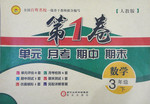题目内容
Part one: First Major Novels
If Dickens had remained the author of Pickwick, Oliver Twist, and The Old Curiosity Shop, he might have gained lasting fame only as an author of cheerful comedy. But Dombey and Son, published in 1846 and continued till 1848, is a realistic novel of human life in a society which had taken more or less its modern form. The novel is a study of the influence of the values of a business society n the members of the Dombey family.
Part two:
In 1851 Dickens was struck by the death of his father and one of his daughters within 2 weeks. Partly in response to these losses, he created a series of works which have come to be called his “dark” novels and which rank among the greatest success of the art of fiction.
Par three: Later Works
In 1859 Dickens published A Tale of Two Cities, a historical novel of the French Revolution, which is read today most often as a school text. It is fine picture of the historical period and a moving tale of a surprisingly modern hero. Besides publishing this novel in the lately founded All the Year Round, Dickens also published 17 articles, which appeared as a book later.
Dickens’s next novel, Great Expectations(1860~1861), tells the story of a young man’s moral(道德的)development in the course of his life-from childhood in the provinces to gentleman’s role in London. Not based on his own life like David Copperfield, Great Expectations belongs to type of fiction called, in German, Bildungsroman (the novel of a man’s education or formation by experience.)
1.Which of the following Dickens’ novel shows a clear change of style?
A.David Copperfield B.Pickwick
C.Dombey and Son D.Oliver Twist
2.The best title for Part two might be .
A.Unexpected deaths B.Dark novels
C.Great losses D.The art of fiction
3.According to the passage, A Tale of Two Cities .
A.is about the Industry Revolution B.can be found in most of the textbooks
C.is better than his “dark” novels D.is probably published in a new magazine
4.In Great Expectation, Dickens writes about .
A.the growth of a man B.how to become a gentleman
C.his own life experience D.a man’s school education
CBDA

 第1卷单元月考期中期末系列答案
第1卷单元月考期中期末系列答案一How did you do on the test?
一Not so well. I ________ much better but I misread the directions for Part One.
| A.could do | B.could have done |
| C.must have done | D.should do |
Where have all the boys gone?You may be able to find them in the gym, at work or hanging out, but there’s one important place where boys are underrepresented, and the problem seems to be getting worse. These days, at high school graduation ceremonies, there are a lot more girls than boys.
In fact, every year, 10 percent more girls graduate from high school than boys. “I think that there’s a tendency to focus on boys as problems at this point, rather than recognize that boys have problems,” says Joanne Max, PhD. Experts say the problems start in grade school, where there’s often an emphasis on sports instead of reading, for example. “I think that with boys there’s some idea that it’s not masculine(男子汉的)to read,” says Rob Jenkins,  an English professor.
an English professor.
There’s also a shortage of male teachers as role models. “I think boys need role models, so if you’re a boy and you don’t have a dad in your home and then you have one male teacher and it’s your athletic coach then I don’t think you have a message that education is very important,” says Carol Carter, another expert. In addition, classrooms often have too little activity and too much passive listening, which is not conducive(有益的)to boys’ learning.
and too much passive listening, which is not conducive(有益的)to boys’ learning.
Experts say parents can fight back in many ways. Read to your sons early and often; show by your actions that you value their education. Ask them about their schoolwork, offer help, drop by their classroom and finally, appeal to their competitive spirit: challenge them to do better and help them understand that their future depends on it.
【小题1】The underlined part “one important place” in Paragraph 1 refers to “______”.
| A.classrooms | B.factories |
| C.high school graduation ceremonies | D.gyms |
| A.reading is more important than sports |
| B.it is shameful for boys to read |
| C.boys should not work as a teacher |
D.boys la ck the gift for reading ck the gift for reading |
A.parents p lay an important role in education lay an important role in education |
| B.athletic coaches contribute a lot to education |
| C.lack of male teachers affects boys’ attitudes to school work |
| D.classrooms lack enough activities that are suitable for boys |
| A.often read to their sons when they are young |
| B.keep an eye on their sons’ studies at school |
| C.encourage their sons to compete with others |
| D.prevent their sons from taking part in sports |

 _.
_. 56. There were
________ children in each class when Richard was in the school in Bath, England.
56. There were
________ children in each class when Richard was in the school in Bath, England.